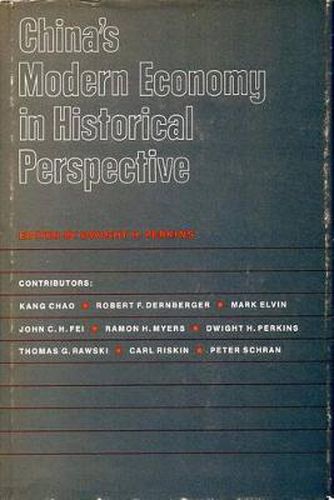Readings Newsletter
Become a Readings Member to make your shopping experience even easier.
Sign in or sign up for free!
You’re not far away from qualifying for FREE standard shipping within Australia
You’ve qualified for FREE standard shipping within Australia
The cart is loading…






Why did it take China more than a century after its defeat in the first Opium War to begin systematically acquiring the fruits of modern technology? To what extent did the rapid economic developments after 1949 depend on features unique to China and to Chinese history as well as on the socialist reorganization of society? These are the major questions examined in this collection of papers which challenges many previously accepted generalizations about the nature and extent of advances in China’s economy during the twentieth century.
The papers discuss the positive and negative effects of foreign imperialism on Chinese economic development, the adequacy of China’s financial resources for major economic initiatives, the state of science and technology in late traditional China, the changing structure of national product and distribution of income, the cotton textile and small machine-building industries as examples of pre-1949 economic bases, the village-market town structure of rural China, the tradition of cooperative efforts in agriculture, and the influence of the Yenan period on the economic thinking of China’s leaders.
$9.00 standard shipping within Australia
FREE standard shipping within Australia for orders over $100.00
Express & International shipping calculated at checkout
Why did it take China more than a century after its defeat in the first Opium War to begin systematically acquiring the fruits of modern technology? To what extent did the rapid economic developments after 1949 depend on features unique to China and to Chinese history as well as on the socialist reorganization of society? These are the major questions examined in this collection of papers which challenges many previously accepted generalizations about the nature and extent of advances in China’s economy during the twentieth century.
The papers discuss the positive and negative effects of foreign imperialism on Chinese economic development, the adequacy of China’s financial resources for major economic initiatives, the state of science and technology in late traditional China, the changing structure of national product and distribution of income, the cotton textile and small machine-building industries as examples of pre-1949 economic bases, the village-market town structure of rural China, the tradition of cooperative efforts in agriculture, and the influence of the Yenan period on the economic thinking of China’s leaders.